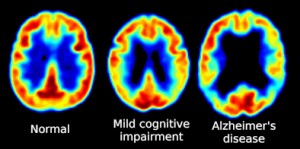 During the time a brain sleeps, it is able to clear itself of harmful toxins, this process might lower the risk of developing Alzheimer’s disease, said researchers.
During the time a brain sleeps, it is able to clear itself of harmful toxins, this process might lower the risk of developing Alzheimer’s disease, said researchers.
During sleep, the cerebrospinal fluid flow in the brain become dramatically higher, which washes away the waste proteins that are harmful that build up during waking hours between the different brain cells, a study found that used mice.
The results of the study appeared have offered the best explanation to date of why people and animals need sleep. If the study proves true for humans, it could help to explain the mysterious association between brain diseases and sleep disorders, including Alzheimer’s.
Researchers discovered that the faster flow was possible because the brain in mice actually shrinks when they are asleep, making fluid flow easier.
When the animal was awake, the cells in the brain enlarged once again and slowed down the flow of fluid to a trickle. Researchers described it as opening a faucet at night and closing it during the day.
This process is very important, as the particles being washed away while the mice are sleeping are waste proteins, which are toxic for brain cells. This could, said the researchers, explain the reason why people do not think as clearly following a sleepless night and why the prolonged lack of sleeping could actually cause death to a person or animal said scientists.
The process of cleaning the brain has already been observed on both baboons and rats, but not in humans to date.
Nevertheless, it could offer new ways to understand the diseases of the human brain, which includes Alzheimer’s.
